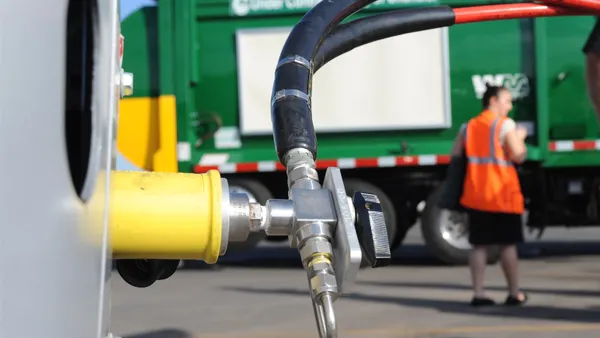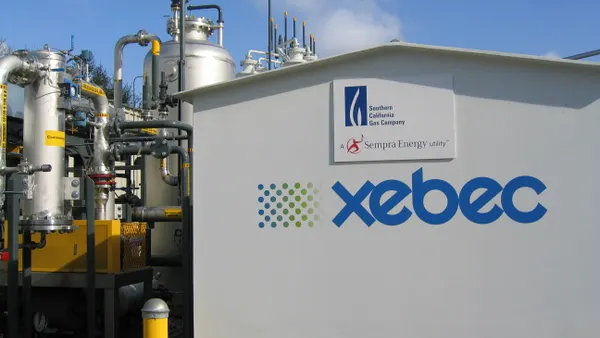Dive Summary:
- The soil bacterium Ralstonia eutropha normally stops growing when stressed and instead makes and stores carbon compounds.
- Normally this bacterium is used to help make plastics but after “knocking out a few genes, inserting a gene from another organism, and tinkering with the expression of other genes,” the microbe now produces isobutanol, a kind of alcohol that can be substituted for gasoline.
- Isobutanol could potentially be used to turn carbon sources, including agricultural waste or municipal waste, into fuel.
From the article:
A humble soil bacterium called Ralstonia eutropha has a natural tendency, whenever it is stressed, to stop growing and put all its energy into making complex carbon compounds. Now scientists at MIT have taught this microbe a new trick: They've tinkered with its genes to persuade it to make fuel -- specifically, a kind of alcohol called isobutanol that can be directly substituted for, or blended with, gasoline...









